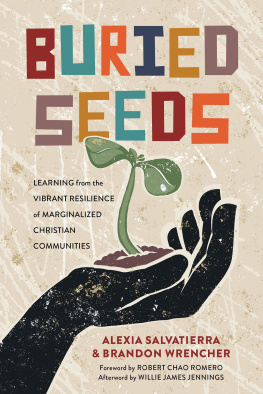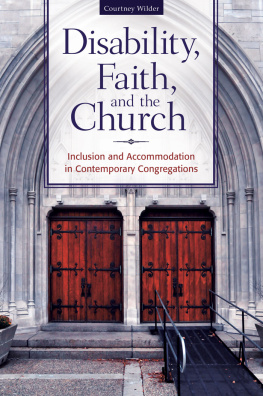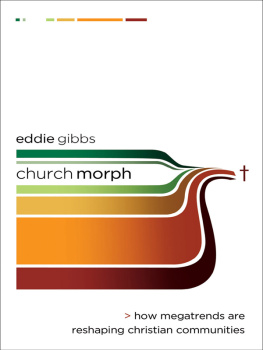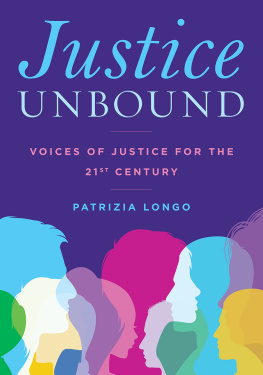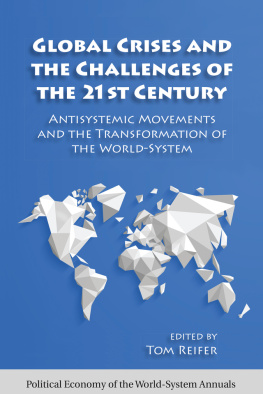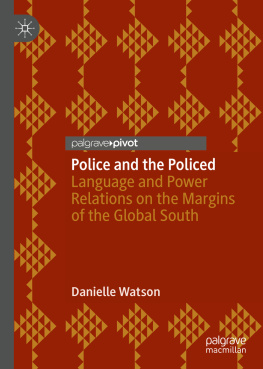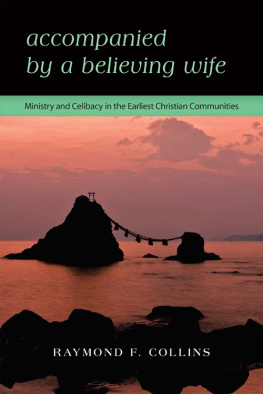Endorsements
This very worthy book shines historical light on the ingenious, centuries-old contributions of Black and Brown peoples who understood the interrelationship between Christian faith and social justice. During the current era in which organizers and faith communities sometimes seem desperate for new models in the name of innovation, the authors plumb our collective history and make the case that some strategies are timeless and have merit in an array of cultural circumstancesincluding todays. Inasmuch as I subscribe personally to the principle of sankofa , Im especially grateful for the authors willingness to look back in order to move forward.
Paul Roberts Sr. , Johnson C. Smith Theological Seminary
As you read Buried Seeds , your knowledge of base ecclesial communities (CEBs in Latin America and the Philippines) and hush harbors (US antebellum South) will be deepened, you will gain wisdom concerning our own social challenges, and you will benefit from practices the authors present. Whats more, as you enter the worlds of Salvatierra and Wrencher, if you dwell there with heart and mind and if you bring these worlds into conversations, then as you reenter your own world, your awareness and imagination will be changed. You will be more apt to see the Spirit of Jesus ahead of you and around you, calling you and your community toward participation.
Mark Lau Branson , Fuller Theological Seminary; coauthor (with Juan Martnez) of Churches, Cultures, and Leadership
Buried Seeds pays homage to the critical course of liberationist growth and process: freedom is embedded in the miracle of lifes happenings; and no matter the circumstances, life will always spring up where there is potential for flourishing. Salvatierra and Wrencher have gifted us all a book that feels like a garden!
Oluwatomisin Olayinka Oredein , Brite Divinity School
Beginning with the challenging but hopeful admonition, The Church has to be so much more, this timely and significant work offers real-life examples of churches and Christian communities that are so much more. Drawing inspiration and examples from the oppressed and the poor, this book provides the hope that renewal can truly come from the margins. Buried Seeds exemplifies the best of what the church can be and offers a much-needed antidote for an ailing church.
Soong-Chan Rah , Fuller Theological Seminary
If youre about to close the door on Christianity for good, wait, and read this book first! Buried Seeds is the dose of hope weve needed in an age where its hard to tell the difference between ecclesia and empire. Salvatierra and Wrencher draw on decades of lived experience to remind us that for generations Black and Brown peoples have shown us The Way, forging a rich faith out of exile and struggle. Packed with pertinent research, rigorous theological analysis, and vivid stories, this book is a manual for leaders who seek to provoke the Christian church into resurrected life. Buried Seeds made me commit anew to the assembling of ourselves together.
Rev. Naomi Washington-Leapheart , curator, Salt | Yeast | Light
Buried Seeds is a sacred gift to a church in crisis. The authors take us on a journey and help us recover the radical and unsung roots of the Christian faith by introducing us to transformational ministry models. For those who take seriously the call to Christian community and to putting faith into action, Salvatierra and Wrencher will provide guidance and wisdom through their Spirit-filled words.
Karen Gonzlez , author of The God Who Sees and Beyond Welcome
Half Title Page
Title Page
Copyright Page
2022 by Alexia Salvatierra and Brandon Wrencher
Published by Baker Academic
a division of Baker Publishing Group
PO Box 6287, Grand Rapids, MI 49516-6287
www.bakeracademic.com
Ebook edition created 2022
All rights reserved. No part of this publication may be reproduced, stored in a retrieval system, or transmitted in any form or by any meansfor example, electronic, photocopy, recordingwithout the prior written permission of the publisher. The only exception is brief quotations in printed reviews.
Library of Congress Cataloging-in-Publication Data is on file at the Library of Congress, Washington, DC.
ISBN 978-1-4934-3501-2
Unless otherwise indicated, Scripture quotations are from THE HOLY BIBLE, NEW INTERNATIONAL VERSION, NIV Copyright 1973, 1978, 1984, 2011 by Biblica, Inc. Used by permission. All rights reserved worldwide.
The following texts are quoted from extensively throughout. The authors thank the publishers for permission to reprint the material: Ernesto Cardenal. 1976. The Gospel in Solentiname . Maryknoll, NY: Orbis Books. All rights reserved. Reprinted by permission of Orbis Books; Pablo Galdmez. 1983. Faith of a People . Maryknoll, NY: Orbis Books. All rights reserved. Reprinted by permission of Orbis Books; and Niall OBrien. 1987. Revolution from the Heart . Oxford: Oxford University Press. Reproduced with permission of the Licensor through PLSclear.
Baker Publishing Group publications use paper produced from sustainable forestry practices and post-consumer waste whenever possible.
Contents
Endorsements
Half Title Page
Title Page
Copyright Page
Foreword by Robert Chao Romero
Introduction: Longing for More
1. Base Ecclesial Communities: The Lord Hears the Cry of the Poor
2. Hush Harbors: The Invisible Black Prophetic Church
3. Kinship: Familia en Comunin
4. Leader-full: Participacin
5. Consciousness: Conscientizacin and el Mensaje de Liberacin
6. Spirit-uality: Sanidad and la Teologa de las Abuelas
7. Faith-full Organizing: Alma y Fermenta de la Sociedad
8. Catch the Fire: An Integrated Vision for the Twenty-First Century
La Fuente Ministries by Marcos Canales
Mission House Church by Anthony Smith
Afterword by Willie James Jennings
References
Index
Back Cover
Foreword
ROBERT CHAO ROMERO
W hen God came incarnate as a human being to launch a kingdom movement of global redemption, God came as a Galilean. Jesus was raised in Galilee, focused his ministry in Galilee, selected his first apostles from Galilee, and after rising from the dead, commanded his disciples to meet him there as well. Latine and Black theologians such as Virgilio Elizondo, Elizabeth Conde-Frazier, and Howard Thurman have shown us that Galilee was the quintessential marginalized community, or hood, of Jesuss day. Owing to Roman imperialism, Galileans lived as a colonized people in their own historic lands. Most were peasant farmers who faced economic insecurity on account of excessive rents, Roman tribute, and temple tithes and taxes. Jews from Galilee were also looked down on by their southern compatriots in Judea because they lived in a borderlands region, and their frequent contact with gentiles threatened standards of cultural and religious purity. And if Galilee was the hood, then Jesuss hometown of Nazareth was the hood of the hood. As one of his early disciples famously quipped, Nazareth! Can anything good come from there? (John 1:46).
As Latines and African Americans in the United States, we are all Galileans. We share a common history of segregation in housing, education, and public spaces, as well as discrimination in voting rights, employment, public health, and the criminal justice system. Today, we live together in many of the Galilees that still persist and that continue to bear the uneven weight of socioeconomic and political inequality. In the prophetic words of Howard Thurman, we have lived as standing with our backs against the wall (Thurman 1976, 11). As faithful peoples, however, we have journeyed collectively through such racial challenges with Jesus, and we have struggled to recover the Galilean roots of Christianity as the Brown and Black church. In this book, Rev. Dr. Alexia Salvatierra and Rev. Brandon Wrencher document two compelling case studies of this struggle as reflected in the base ecclesial community (BEC) movement of Latin America and the Philippines and the hush harbors of enslaved Africans in the antebellum South.

